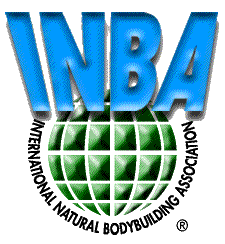The International Natural Bodybuilding Federation (INBF) was created to provide “natural bodybuilders” with the option to compete against athletes who do not use anabolic steroids, human growth hormone (hGH) or any other muscle-building drugs prohibited by the INBF. As with all athletic competitions, there have always been people that don’t play by the rules. In spite of the fact that most bodybuiding contests tacitly allow the use of steroids and don’t test for steroids, some steroid-using bodybuilders still insist on trying to gain an advantage in bodybuilding competitions specifically designated for “drug-free” bodybuilders.
Canada’s Vancouver Cup, sanctioned by the INBF, is reportedly “going to great lengths” to ensure a drug- and steroid-free competition at Capilano University on July 28, 2012. However, the INBF testing will be seriously limited by the size of their budget.
The World Anti-Doping Agency (WADA) has long been considered to provide the gold standard in steroid testing. The WADA Code has been adopted by numerous sports including all Olympic sports. Millions of dollars, usually taxpayer dollars, have been used to develop and administer sophisticated tests for detecting the use of steroids and performance-enhancing drugs. Still, efforts to eliminate steroids and PEDs from sports have been largely ineffective.
Natural bodybuilding faces a major problem when it comes to steroid-testing. WADA-type testing is prohibitively expensive for bodybuilding competitions in general but especially for smaller budgets of drug-free bodybuilding organizations. So, what can organizations such as the INBF do?
INBF is forced to rely on the scientifically-questionable polygraph as an anti-doping test. Christen Kwan, the organizer of the INBF Vancouver Cup, hopes that polygraph testing will at least deter the participation of “big” and “freaky” bodybuilders who uses steroids.
“We polygraph all of our athletes before they’re allowed to compete,” said Kwan. “It almost becomes a bit of a freak show. The bigger the better, the more veins, the leaner, and it just doesn’t look . . . natural. It’s just about being big and being freaky. In the eye of the public, that’s what bodybuilding has become.”
The effectiveness of polygraph testing does not have strong scientific support. The problem is that well-publicized countermeasures can be implemented that allow for steroid-using athletes to easily pass the test.
These methods involve creating a physiological response that is similar to the response polygraphers believe are associated with a “lie.” If a steroid-using bodybuilder produces an physiological response associated with a truthful answer that is indistinguishable from a deceitful answer, they can easily pass the anti-doping test. A polygrapher may suspect the use of countermeasures but they will not be able to prove it.
If the gold standard of steroid testing (i.e. WADA code) has failed to successfully reduce the use of steroids from sports competitions, the use of the cheaper polygraph will be far less effective at ensuring drug-free competition.

Source:
St. Denis, J. (July 25, 2012). Bodybuilding takes on steroids: Tests, lie detectors aim to drive drugs from CapU muscle contest. Retrieved from http://www.nsnews.com/sports/Bodybuilding+takes+steroids/6985642/story.html
Related Posts :
- 2009 NPC Mr. Ohio Sentenced to Sixty Days in Jail for Steroids
- New Zealand Bodybuilder Caught Importing Steroids While Already Facing Steroid Charges
- Steroids Help As Much as a Sun Tan According to Arnold Schwarzengger
- IFBB Pro Bodybuilder Greg Doucette Busted With Large Quantity of Anabolic Steroids

